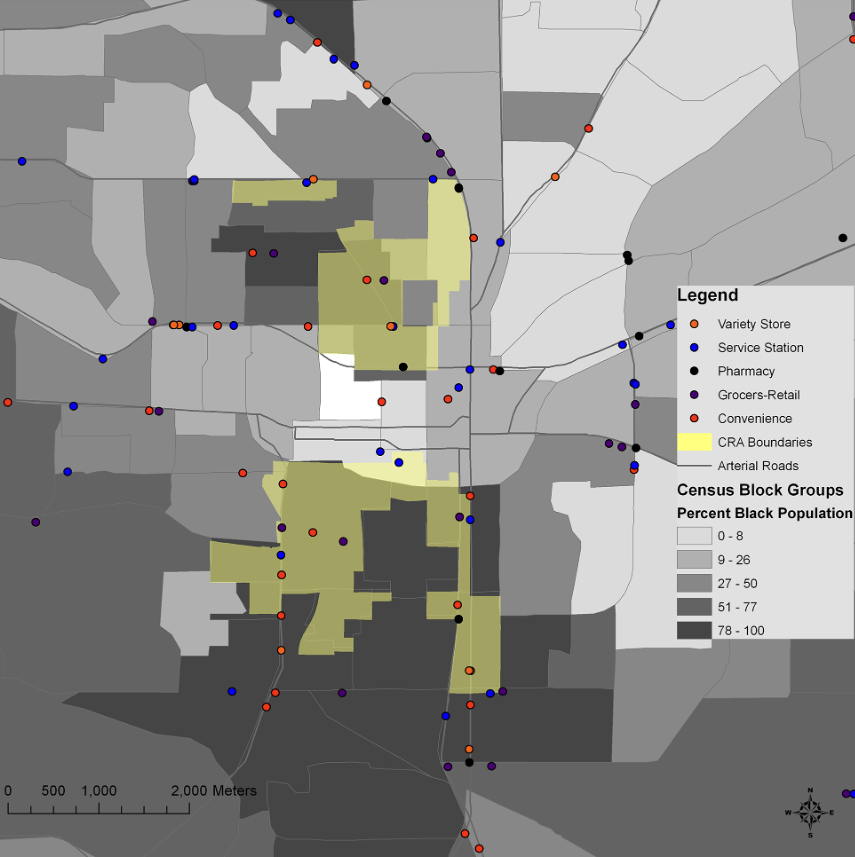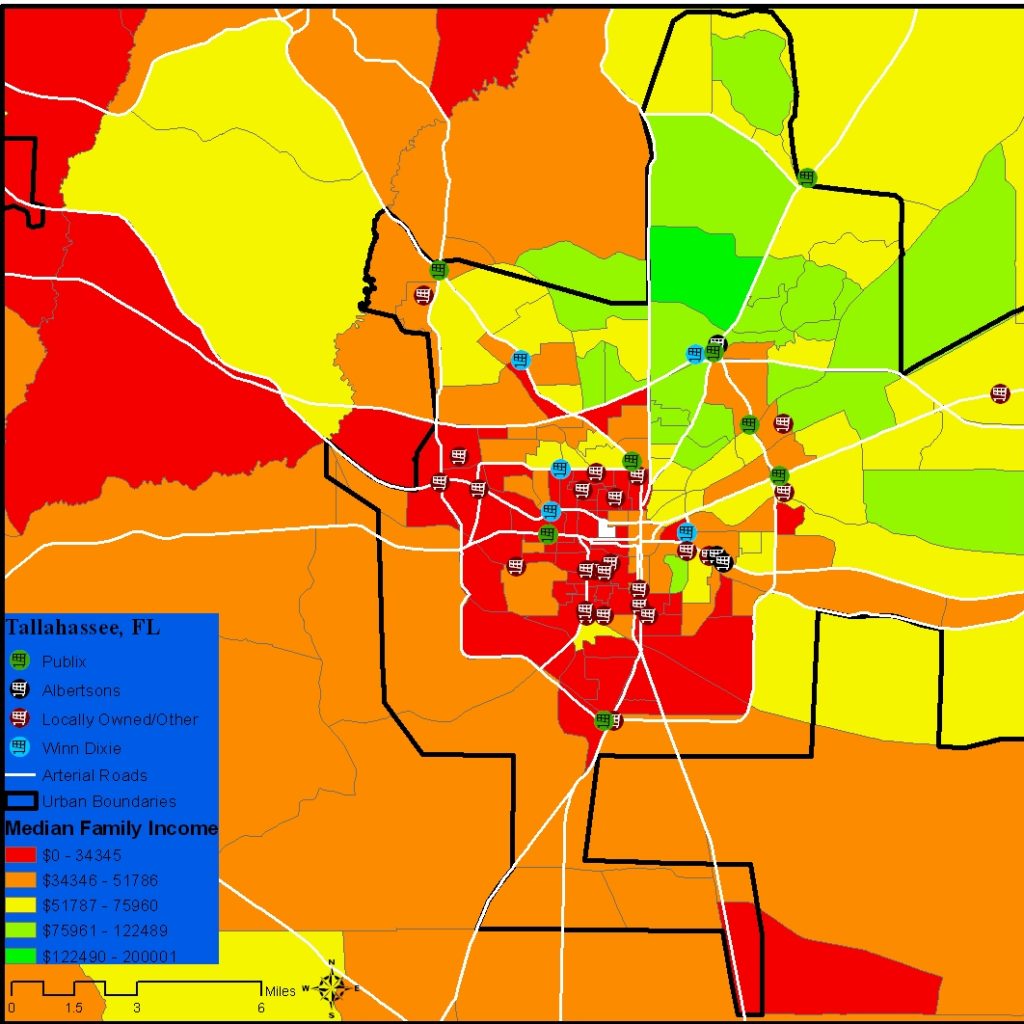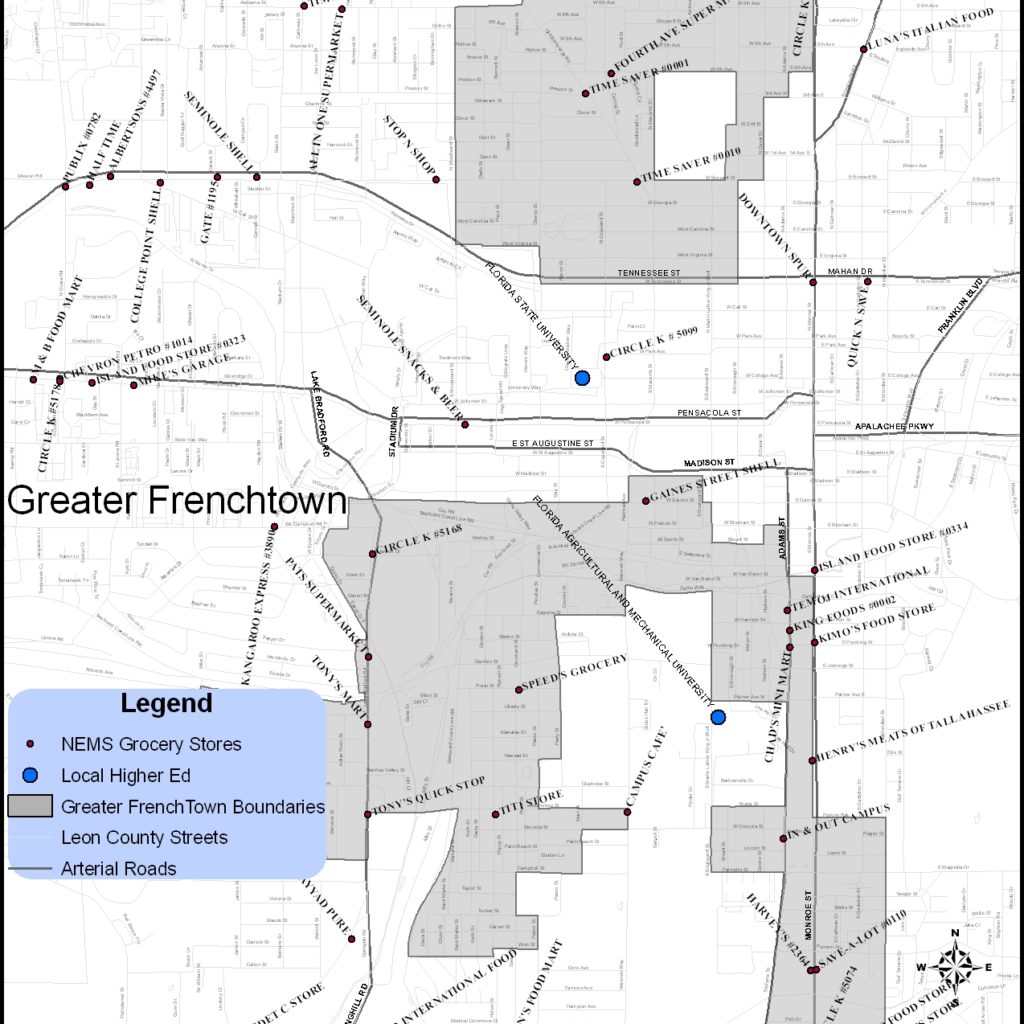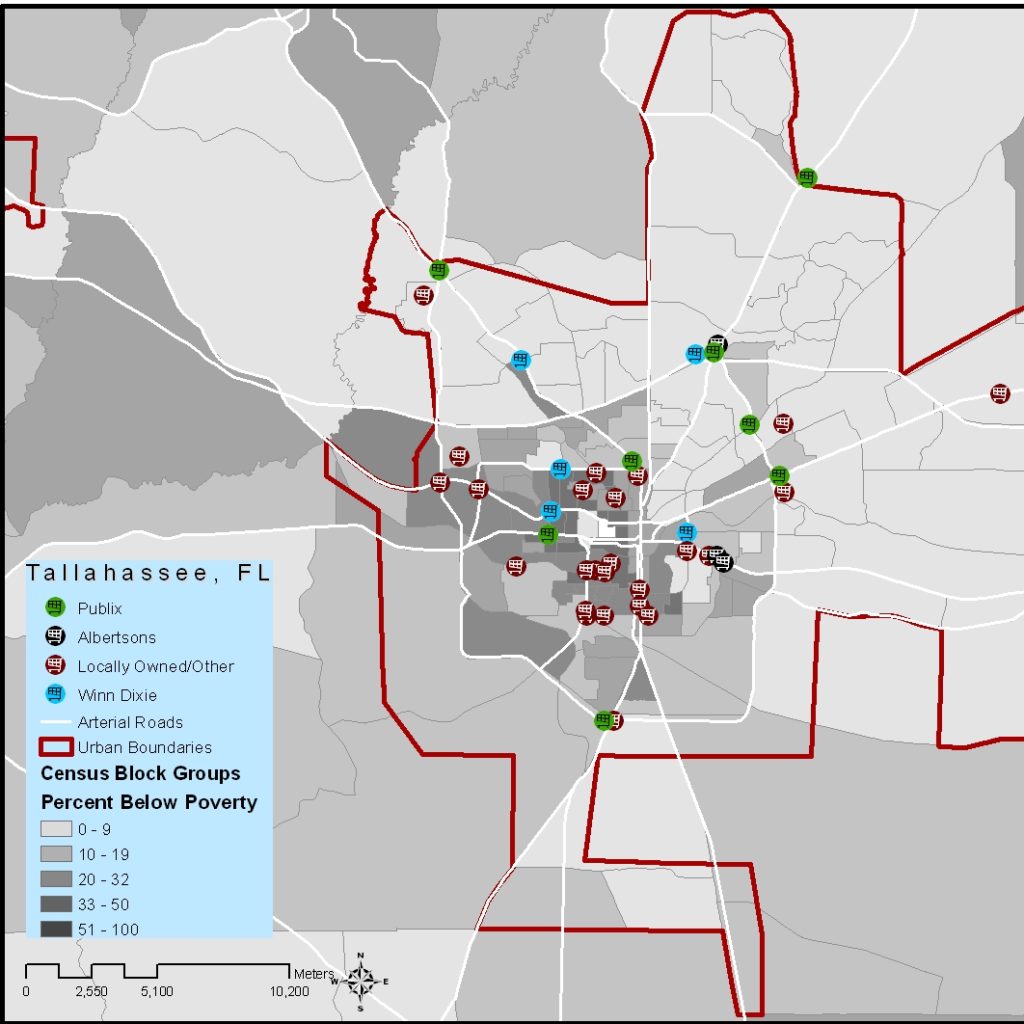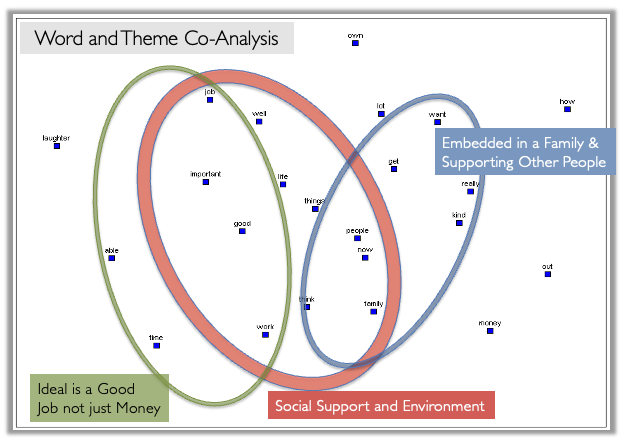

Access to Healthy Foods and the Health Equity Alliance of Tallahassee
An applied participatory research study of food stores in Tallahassee, FL with community collaborators and anthropologists from the University of Florida to determine and implement the best solutions for addressing the lack of healthy foods in predominantly Black neighborhoods.
Quick Look
My role
After community members pinpointed the lack of healthy food in local stores as a high-priority, I helped design a study of stores to find solutions. I analyzed in-depth interviews for themes with MAXQDA, and presented to stakeholders.
Impact
Our findings made it clear that coordinated action was needed to affect change. The Health Equity Alliance of Tallahassee (HEAT) was founded to use research to push policymakers and stakeholders to address sources of health inequity.
Next steps
HEAT continues to work with researchers and the local community members on key health problems, including the disparity in heart health among Black populations in Tallahassee.

Project Overview
Access to Healthy Foods and the Health Equity Alliance of Tallahassee
CHALLENGE
In response to local priorities identified in a community-based participatory research project, collaborated with local leaders in Tallahassee, FL to identify key barriers to availability of healthy food in Black communities.
PROCESS
A diverse group of local and other researchers worked to map and catalogue foods stores, interview stakeholders and triangulate findings into actionable recommendations.
IMPACT
We identified lack of local control over food purchasing decisions as central to limited availability of healthy food in stores. The Health Equity Alliance of Tallahassee (HEAT) was formed to advocate for better access healthequityalliance.org
WHAT DIDN’T WORK
The sample of available store owners and managers was insufficient to make systematic comparisons between store types.
Planning
Analysis
Theme analysis
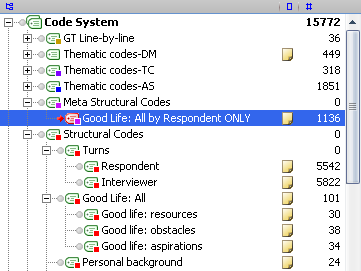
Multiple coders worked together to ensure that theme creation was not biased by the worldview or experience of the coders.
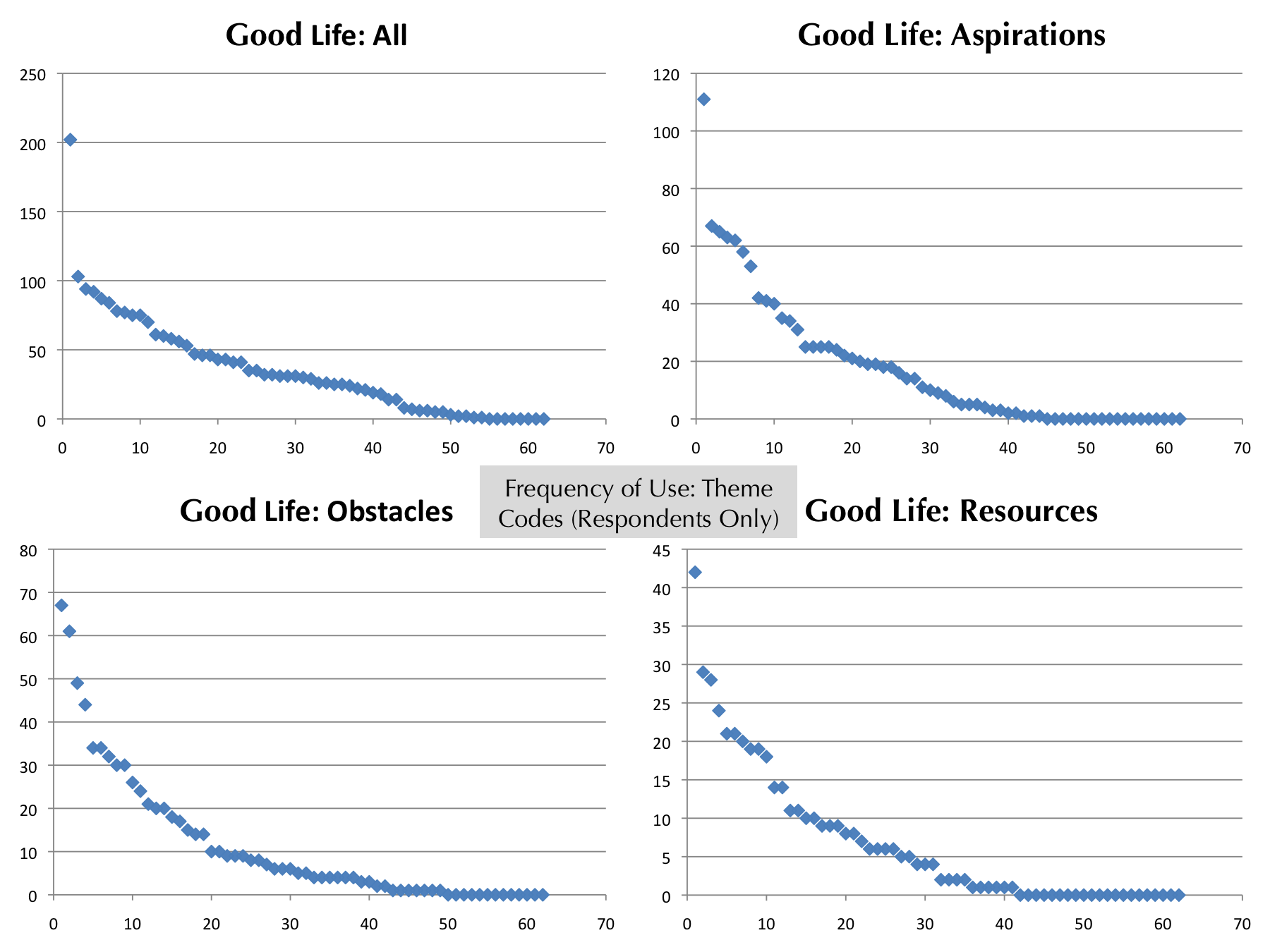
Study Results
Barriers to store owners and managers stocking healthy foods
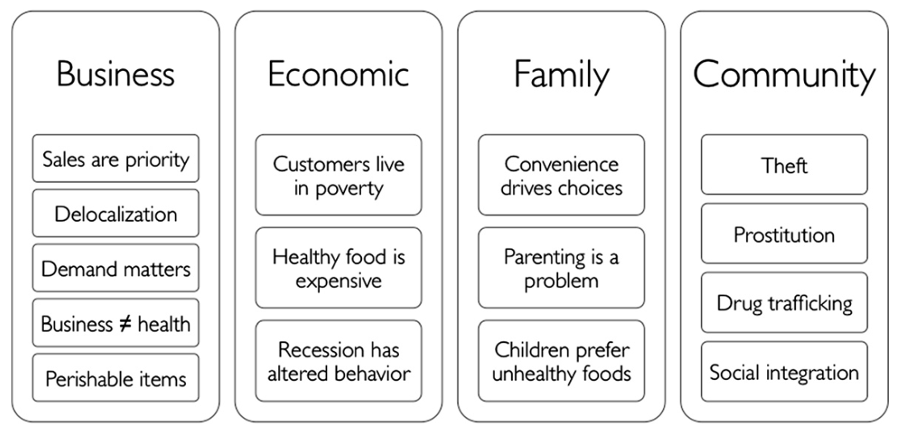
Read more about the results in our peer-reviewed article
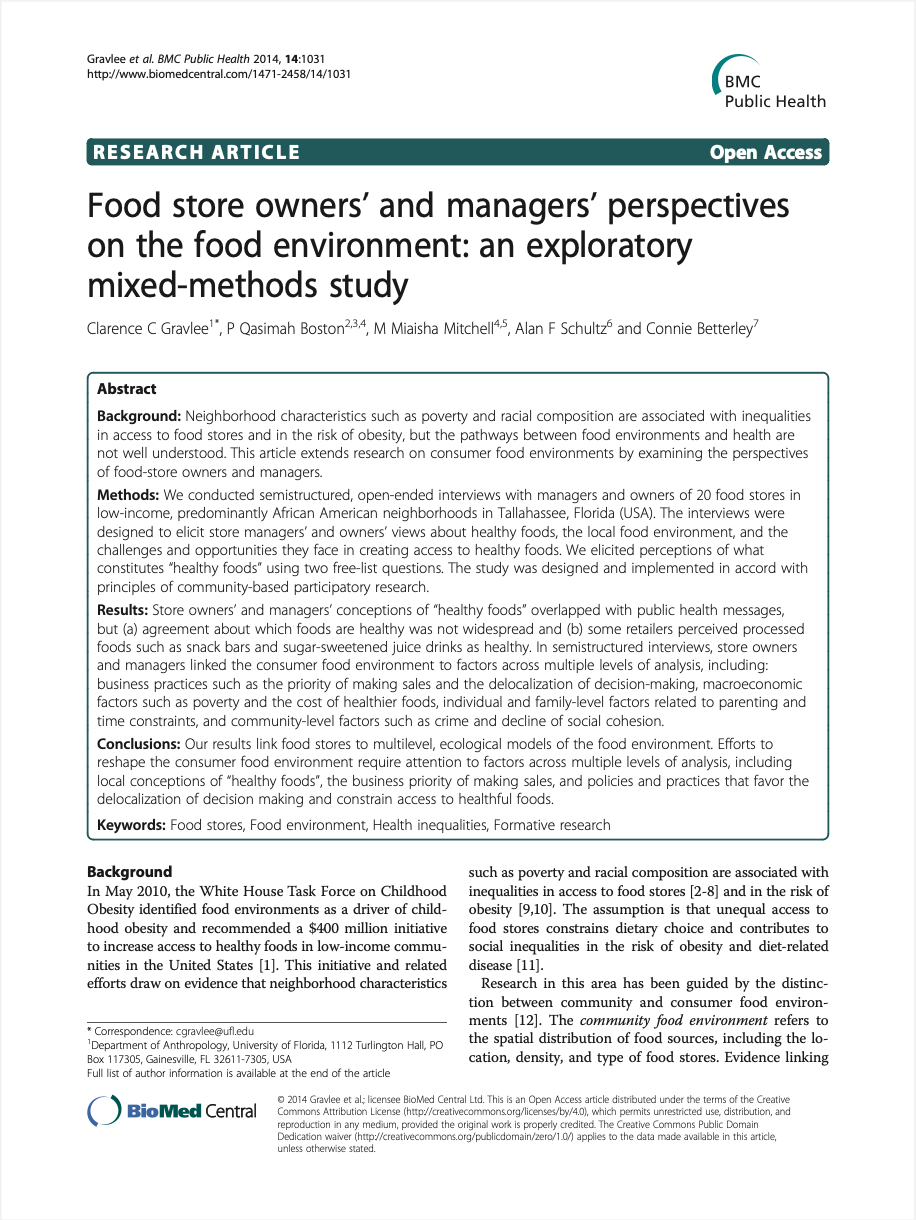
Impact
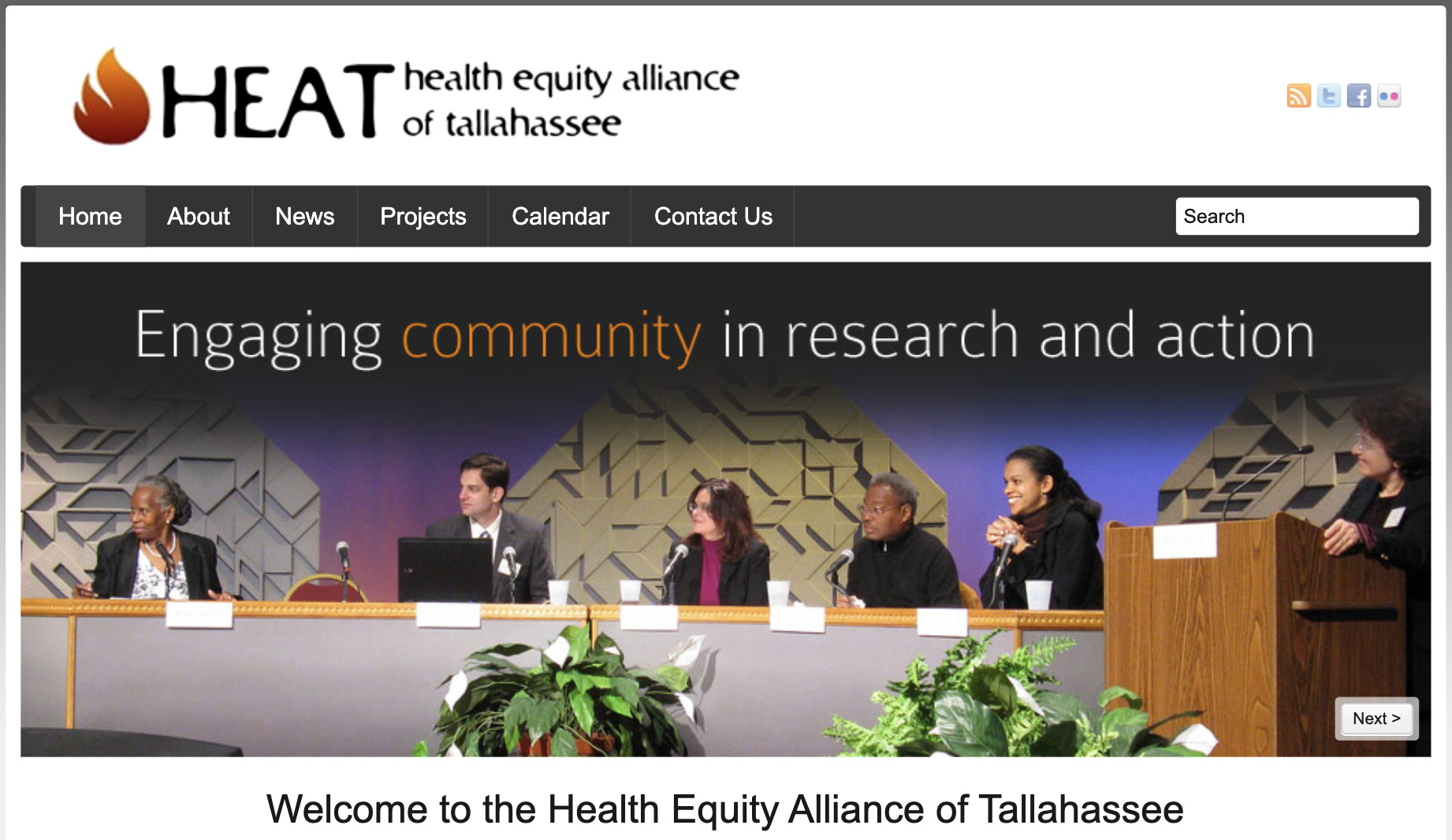
Next, you can check out some of my other projects or if you have any questions about the research process for this study, feel free to contact me and I would be happy to discuss it in more detail.

